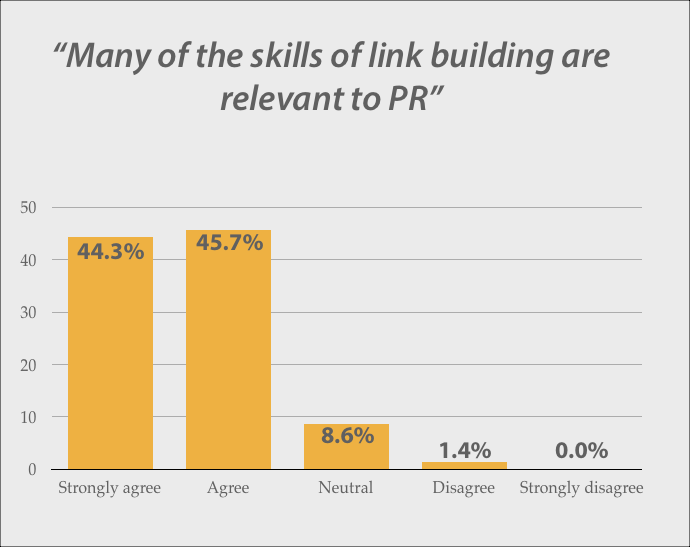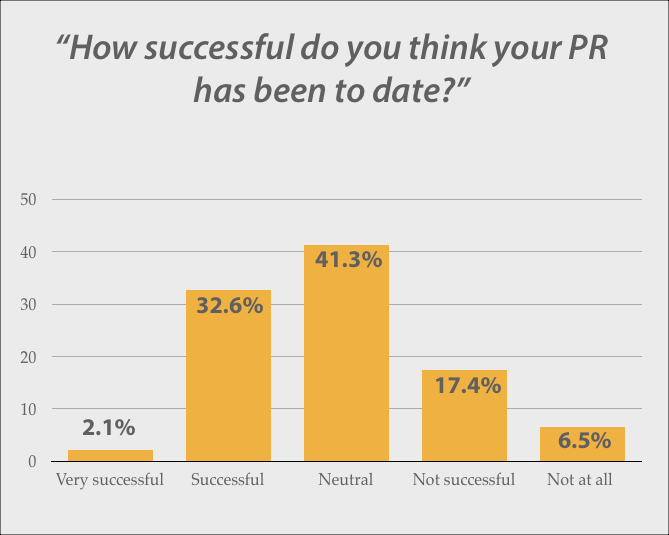Is There Really a Battle Between SEO and PR?
There seems to be some strange sort of courting ritual going on - could SEO and PR mate successfully and have viable offspring? Or will one eliminate the other and emerge dominant in digital marketing?
There seems to be some strange sort of courting ritual going on - could SEO and PR mate successfully and have viable offspring? Or will one eliminate the other and emerge dominant in digital marketing?
There’s a lot published in the SEO industry on the use of online public relations, and likewise in the PR industry, there’s a lot published on the topic of search engine optimization.
There seems to be some strange sort of courting ritual going on – could SEO and PR mate successfully and have viable offspring? Or will one eliminate the other and emerge dominant in digital marketing?
My company Citation Labs decided to explore how their subscribers used PR. The aim was to find out how often PR was used, the challenges that had to be overcome, and what future intentions would be.
Here are some highlights from the survey.
Media coverage is attractive because:
Online PR is more than just sending out press releases – it involves seeking out and building relationships with journalists and media outlets.
For the survey, we defined PR as…
“PR is the practice of encouraging news and business media to carry positive stories about your company, website, or products – and where possible carry a link to your site.”
The survey confirmed that the use of PR was widespread. Seventy-one percent of respondents used PR last year and of those who have not, 79 percent intended to do so in the coming year.

One of the major benefits of online PR is that it can generate editorial links from some of the most authoritative sites on the Web. But the big question is whether these links will help SEO – 89 percent of respondents felt that editorial links would indeed help their SEO.


Ninety percent of respondents felt that their link-building skills were relevant to PR.
This gives both confidence and a foundation on which to tackle PR projects. However, there are differences – with PR the quality threshold may be higher and there may be more competition for available editorial space.
The success of public relations has been notoriously difficult to measure since its inception about 100 years ago.
But add to that the additional requirement that PR should boost search rankings and measurement becomes particularly difficult – if your efforts result in an article in The New York Times but no editorial link, is that a success or failure, or a partial success?

The survey did not try to define success, but asked people to report on what they thought was successful.
Just more than one-third of respondents felt their work had been successful and only 2 percent described it as “very successful.” That appears low and might be down to doing PR badly – but it could also be that expectations were too high.
Success in PR doesn’t come from a quick one-off hit, but from months of work regularly creating good stories, building relationships with journalists, and building trust.
The key here is knowing what to measure – and what to expect. Measurement of success is clearly an area where more work needs to be done.

Only 11.5 percent of respondents felt that PR was best left to specialists. One thing that SEOs and PRs have in common is that many are self-taught. They learn their skills from doing, looking at results and aiming to do better next time.
More than half (54.4 percent) of respondents who have used PR intended to expand their activities in the year ahead.
And most of those who had not yet used PR (79 percent), intended to do so during 2015.

This shows that PR will continue to be seen as an important part of SEO link-building campaigns.
Partnering with an outside consultant or agency is the most immediate way to start incorporating PR into link-building campaigns. A significant number of respondents – 24 percent of those who already used PR and 35.7 percent who had not used PR – intended to do so.
This option is particularly important for those who do not want to get training or who feel they don’t have an aptitude for it. And it may well be that PR consultants and agencies could also benefit from having SEO expertise available.
An association could be attractive to both parties.
PR strategies are worth testing. The survey shows that SEOs are already building experience in using PR as part of link-building campaigns.
While this has brought mixed success to date, respondents clearly intend to improve their PR skills and expand its use with clients.
At the very least, the survey shows SEOs should be giving serious consideration to investigating and developing PR strategies.